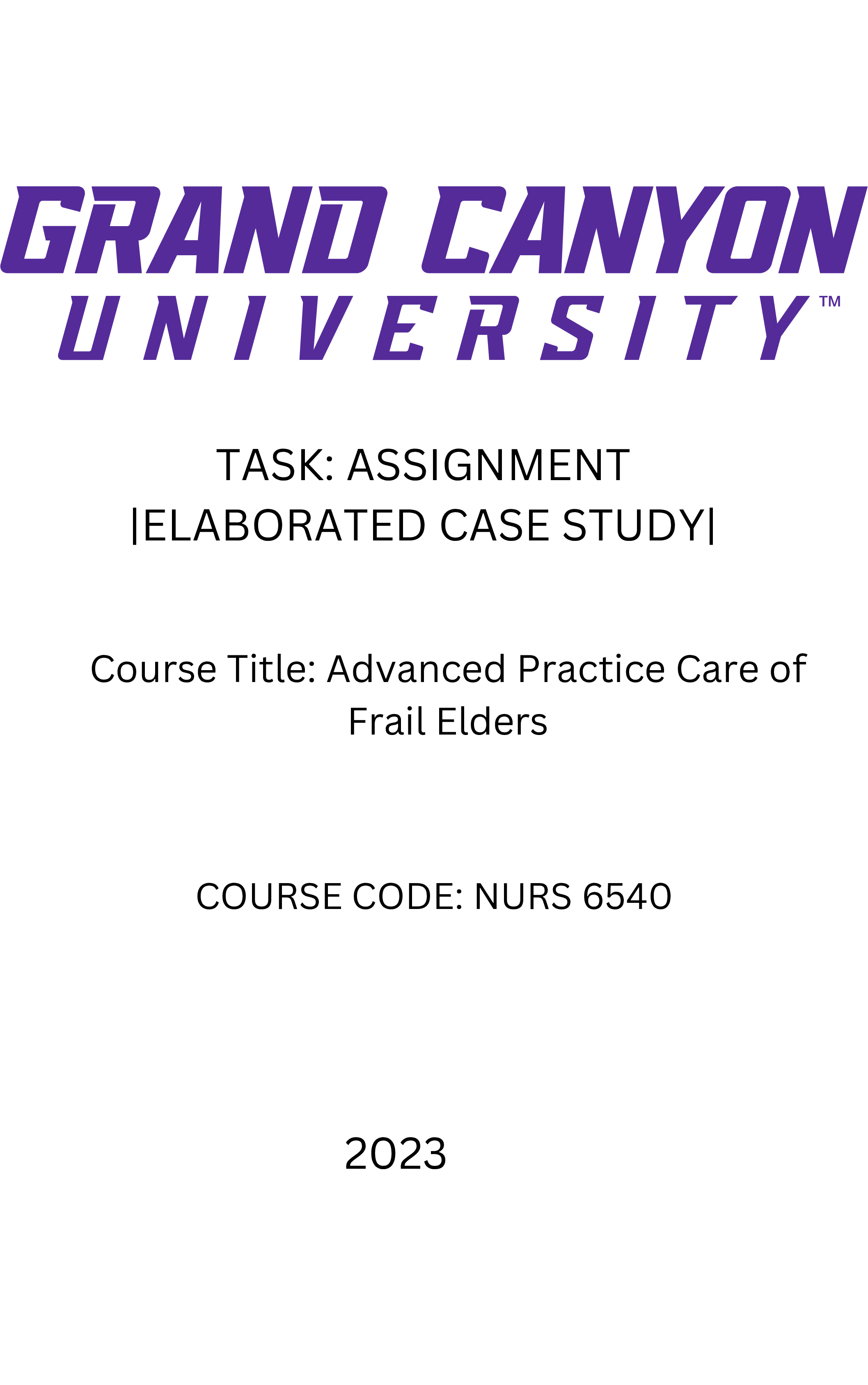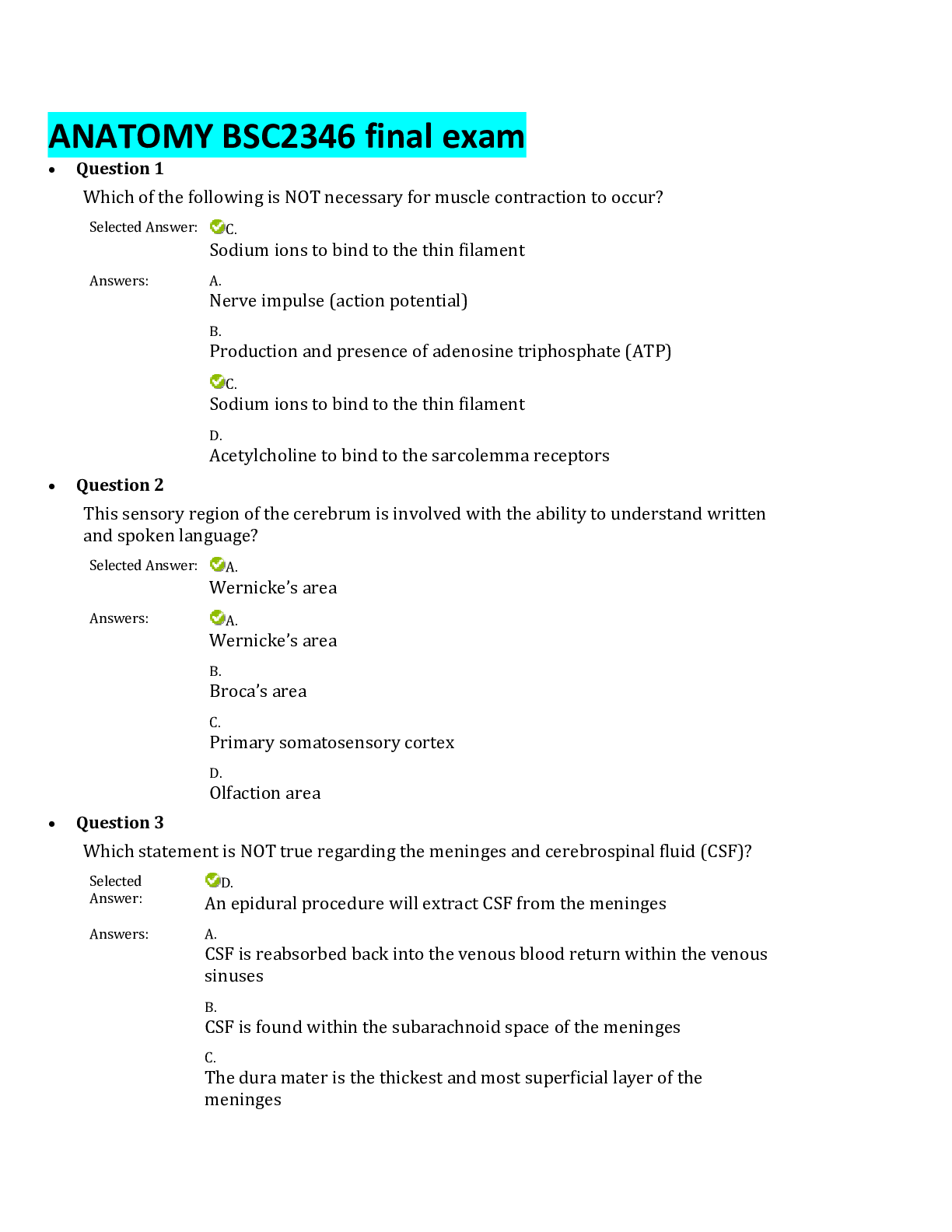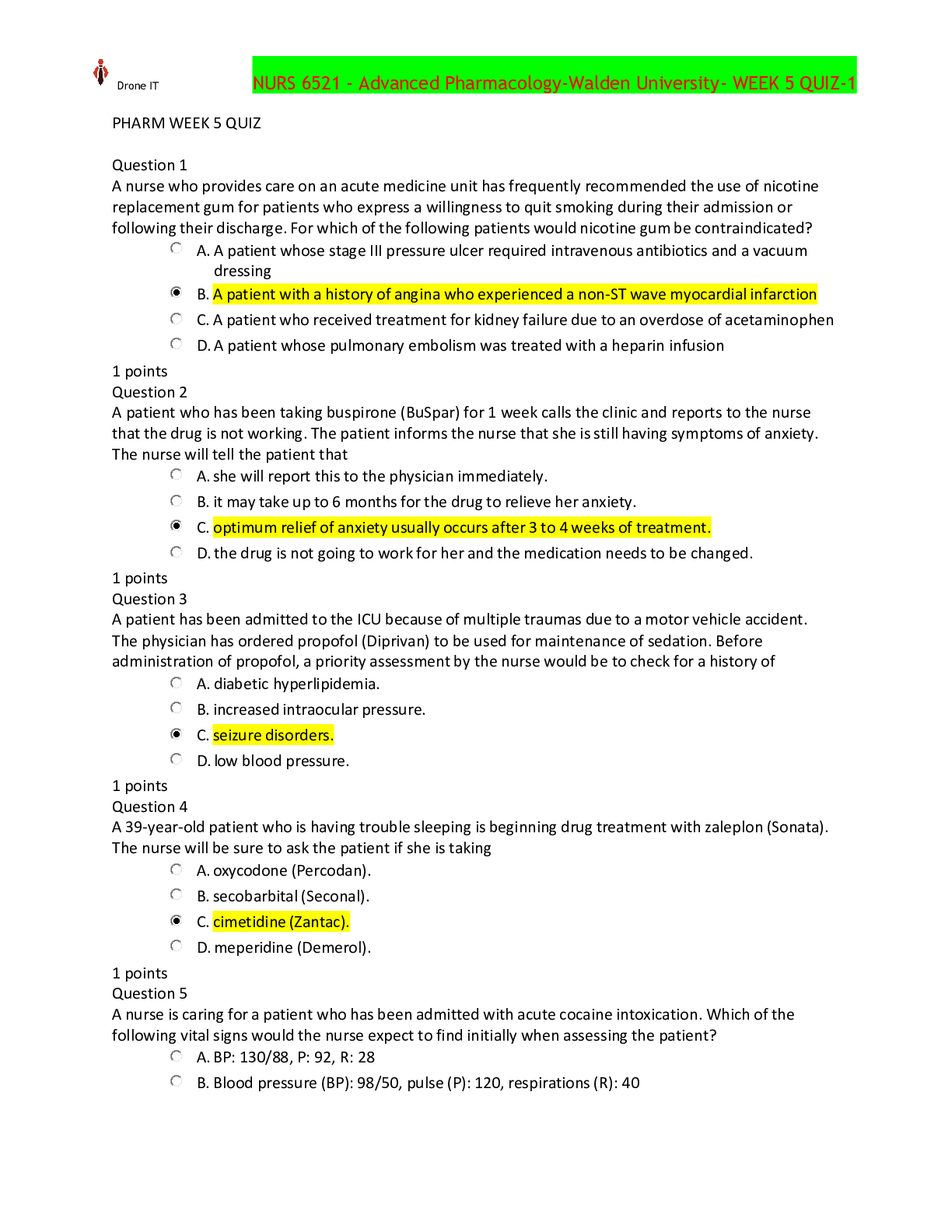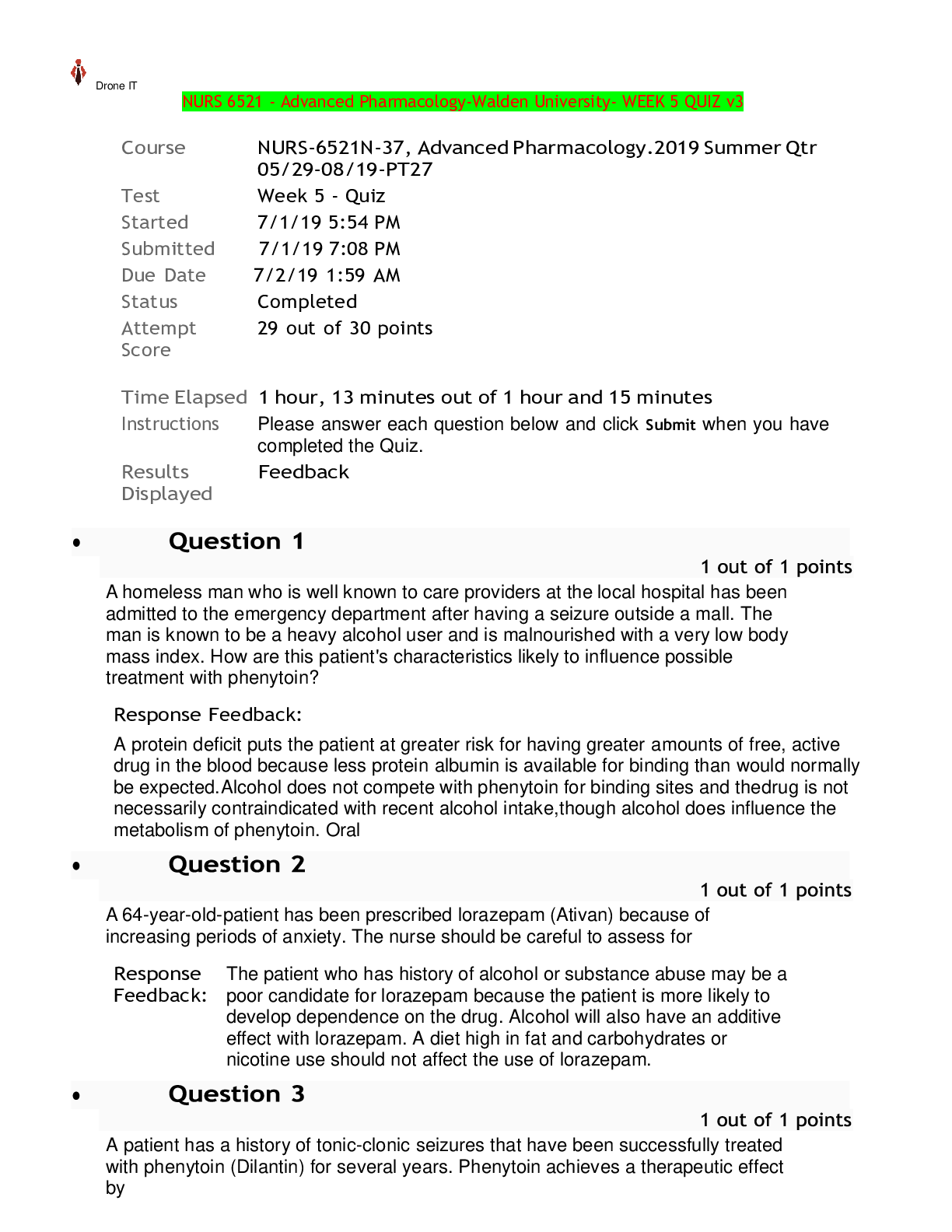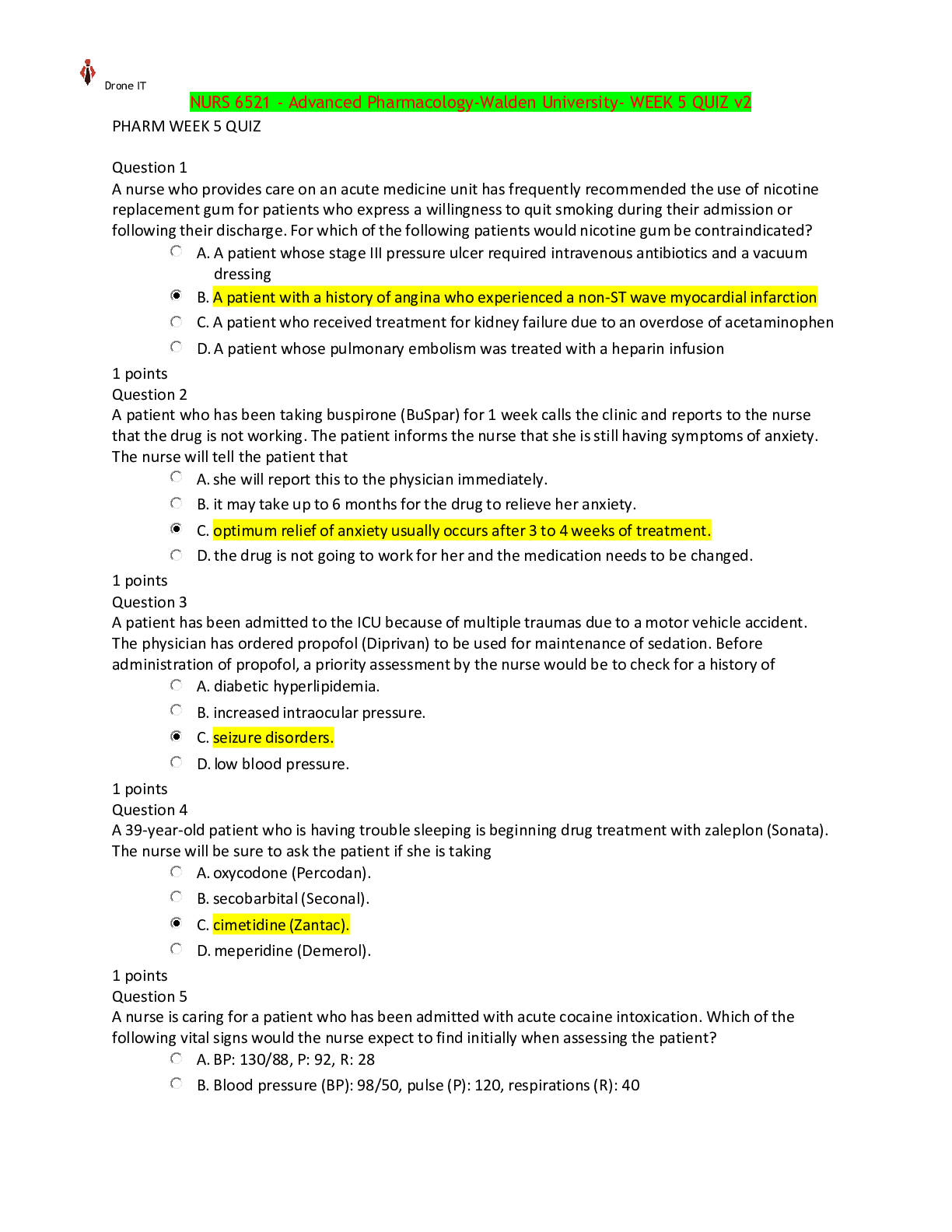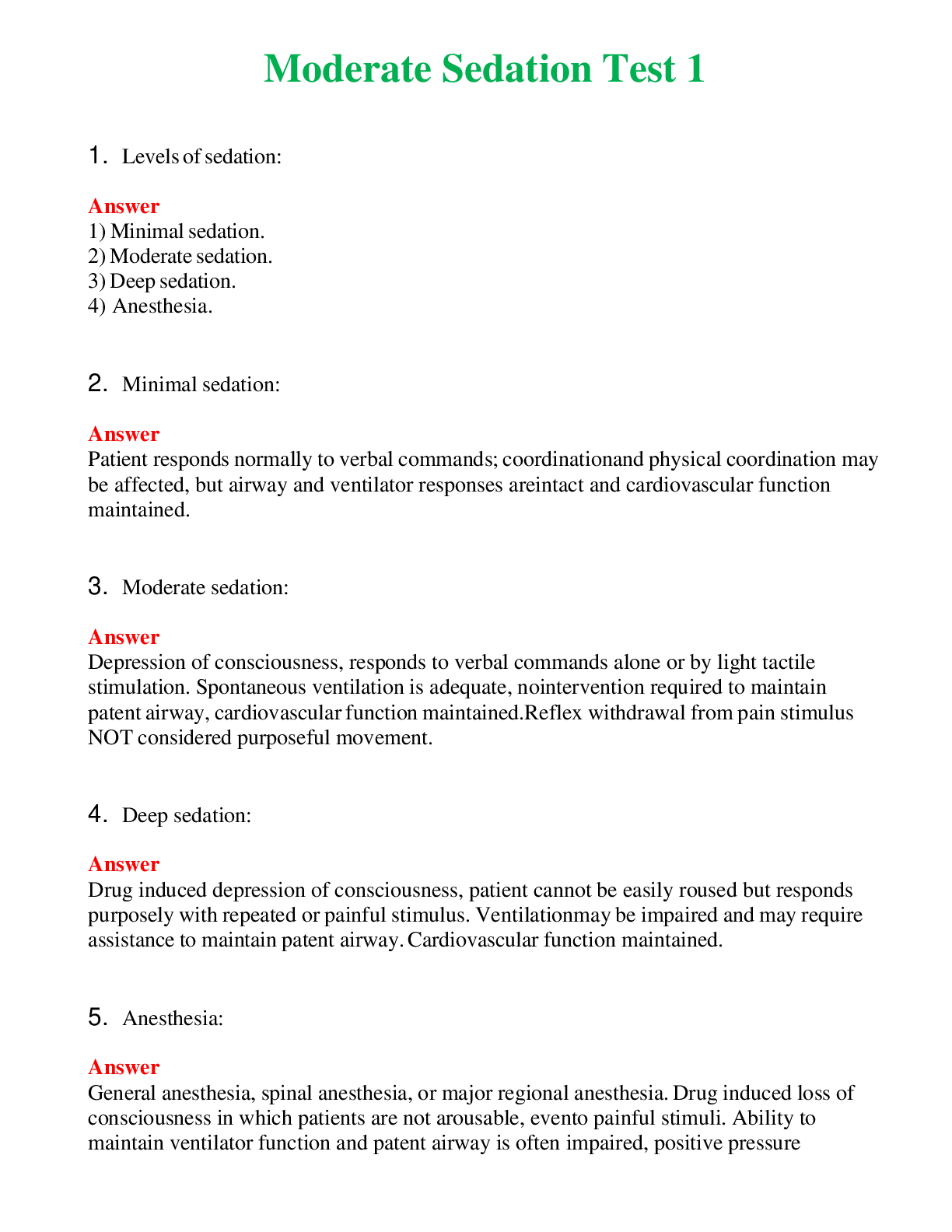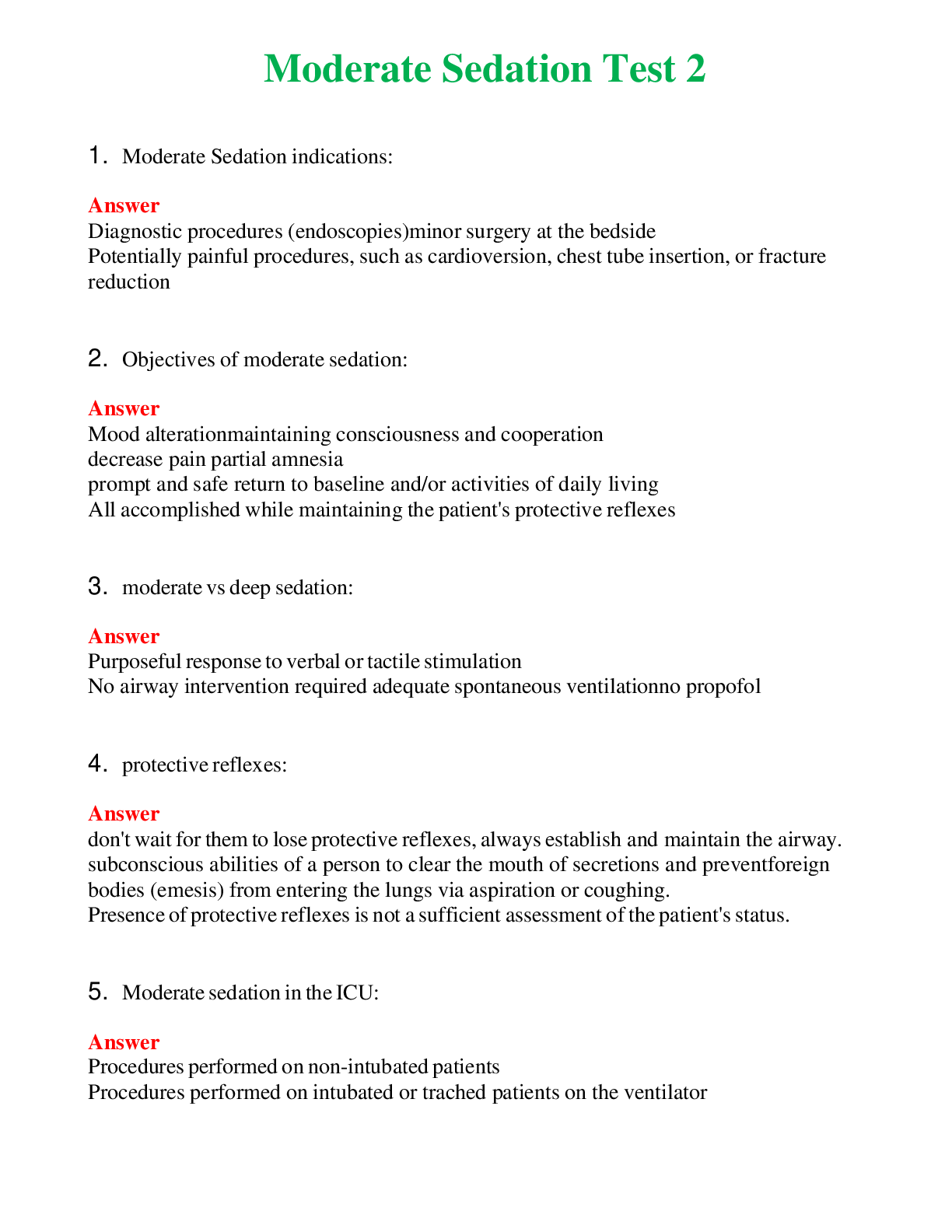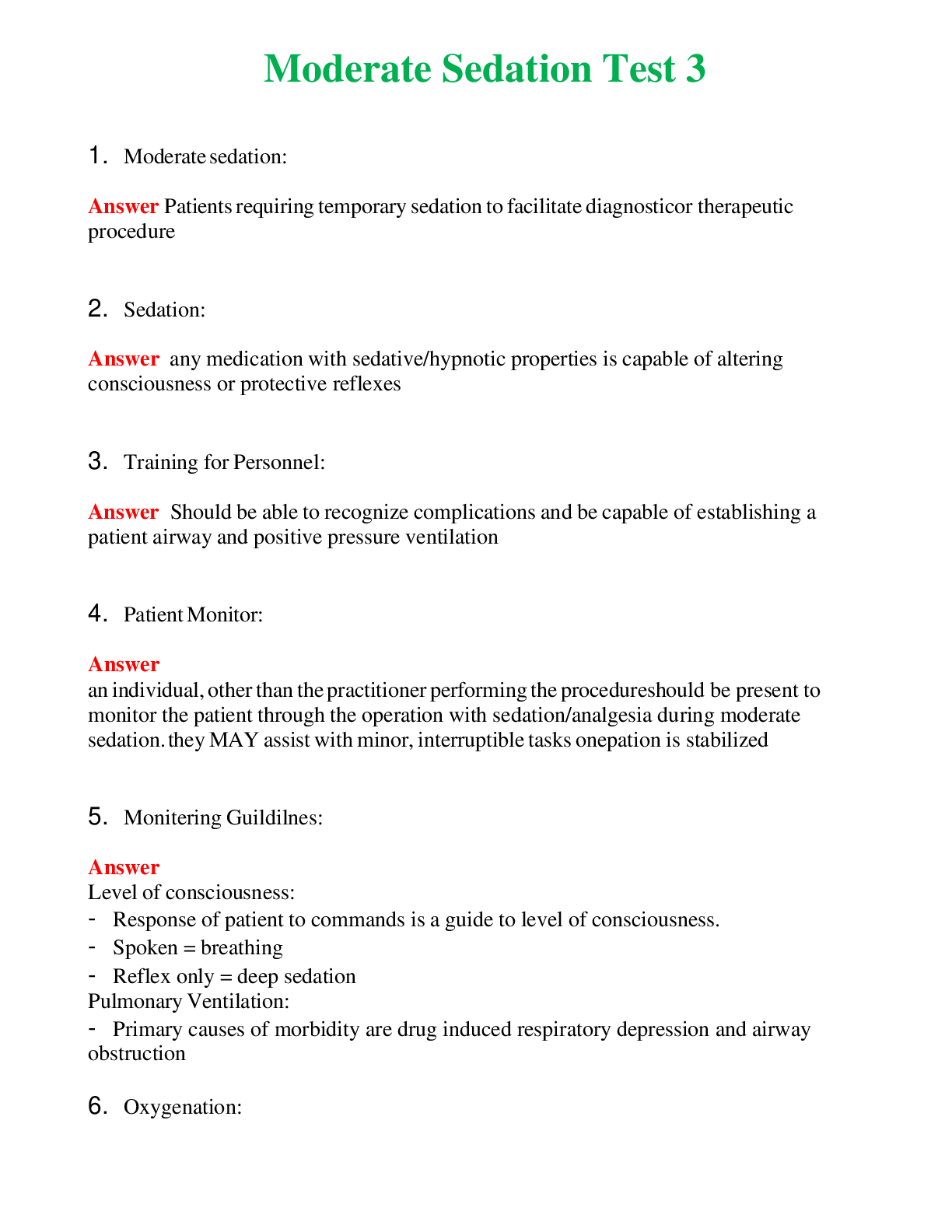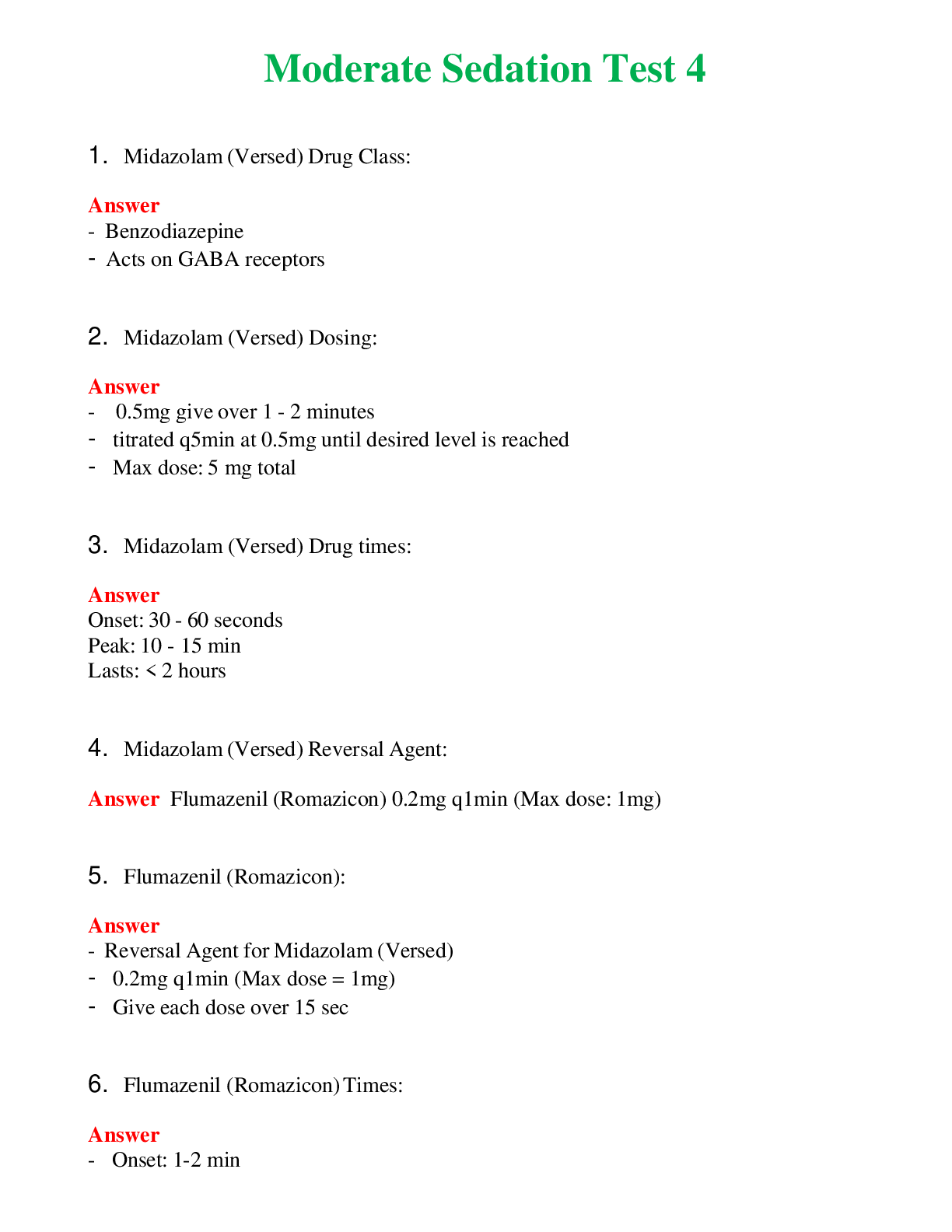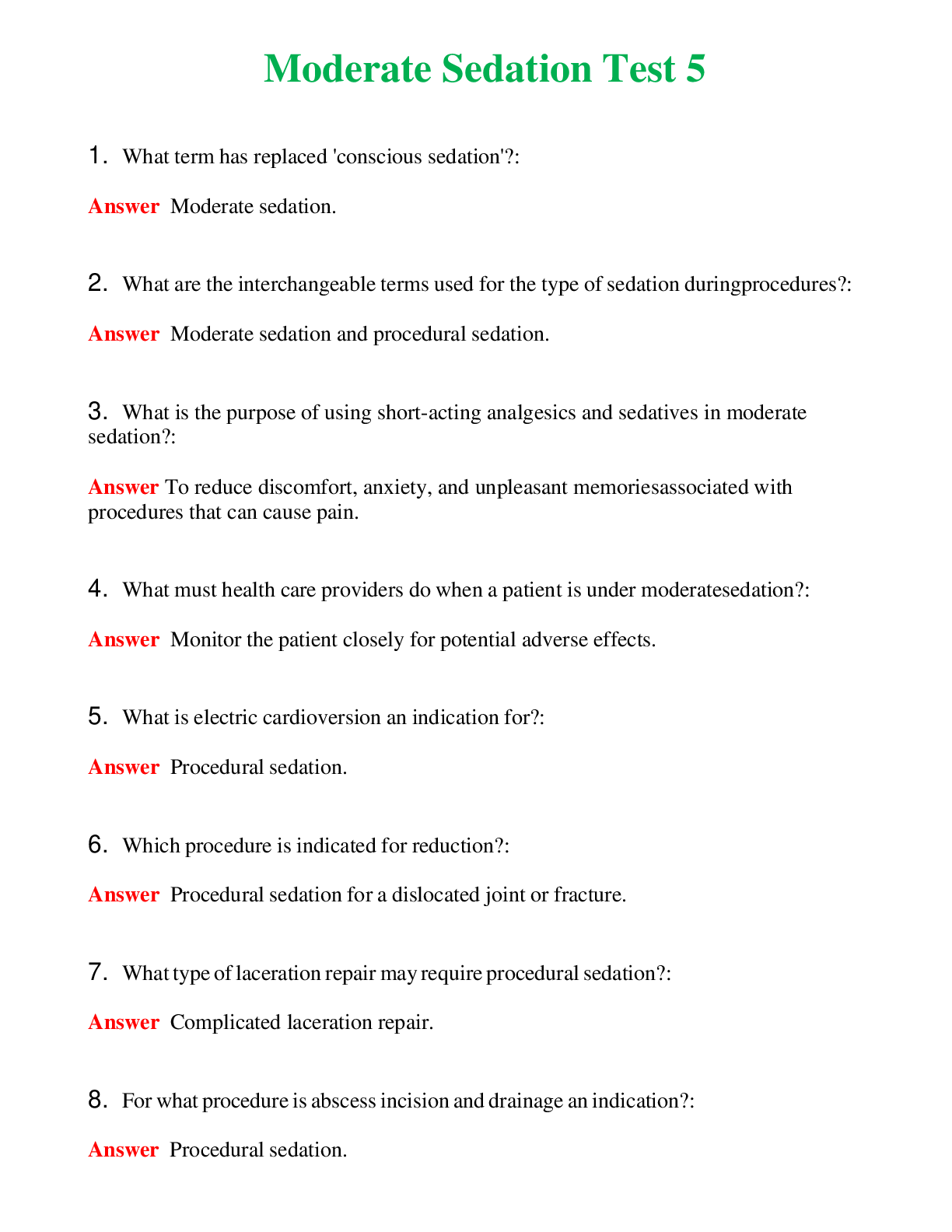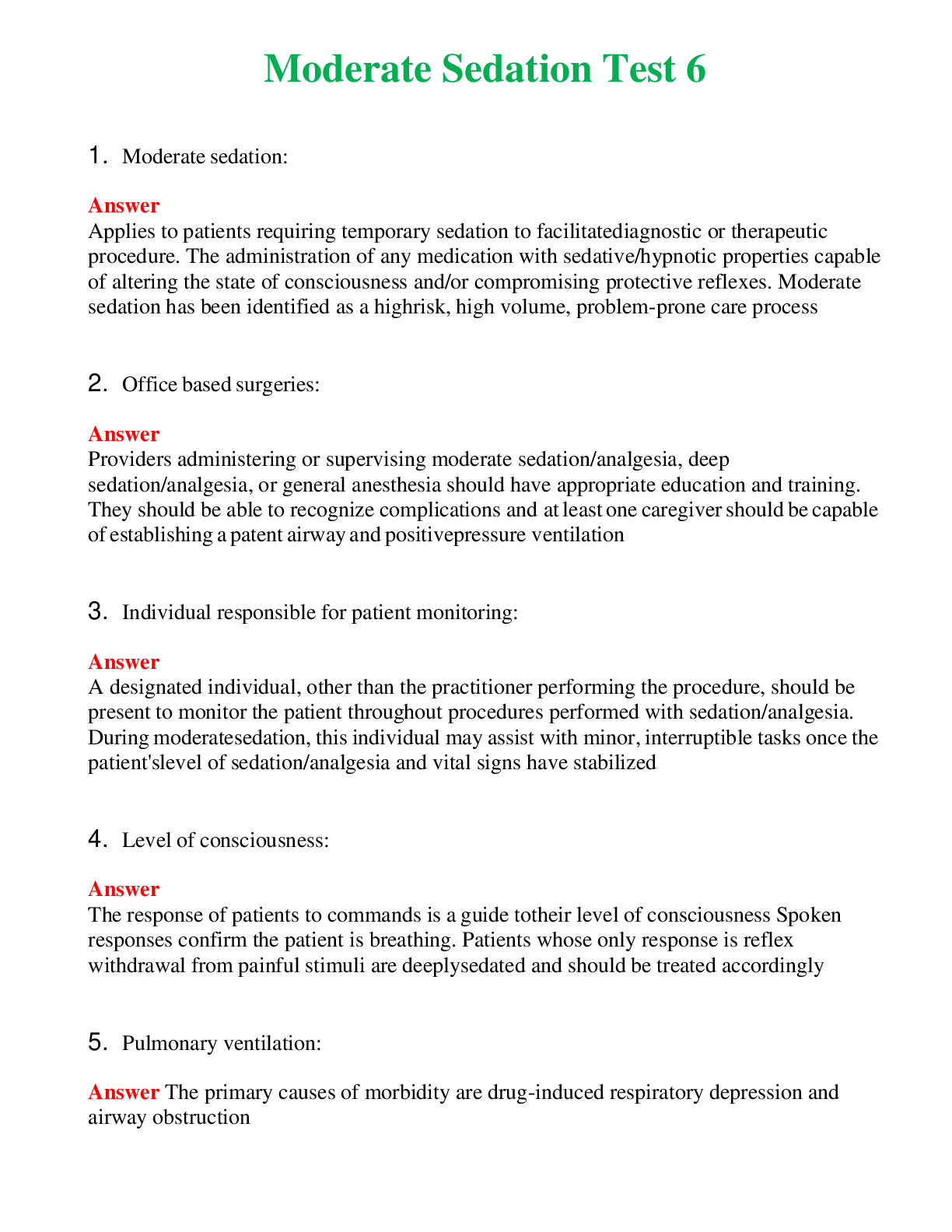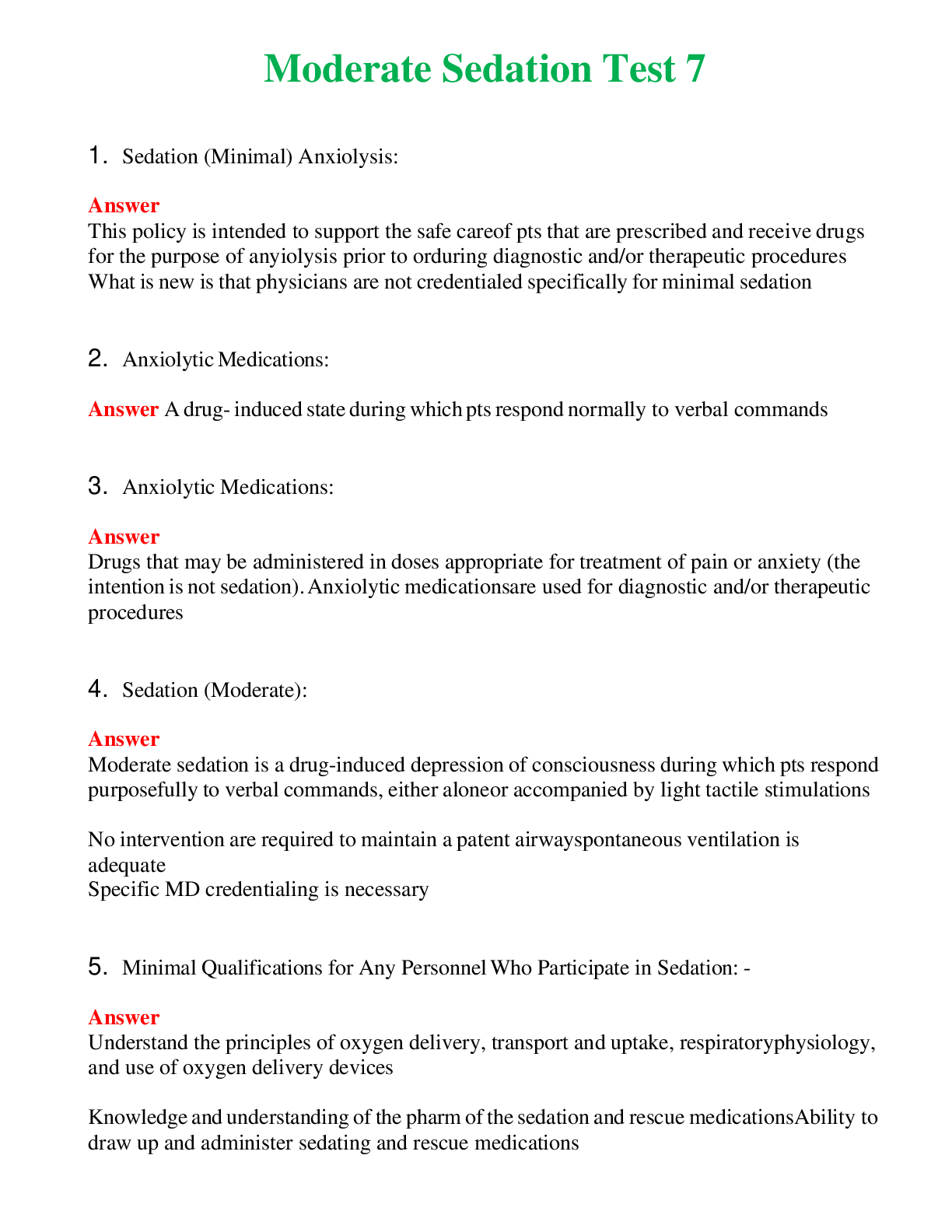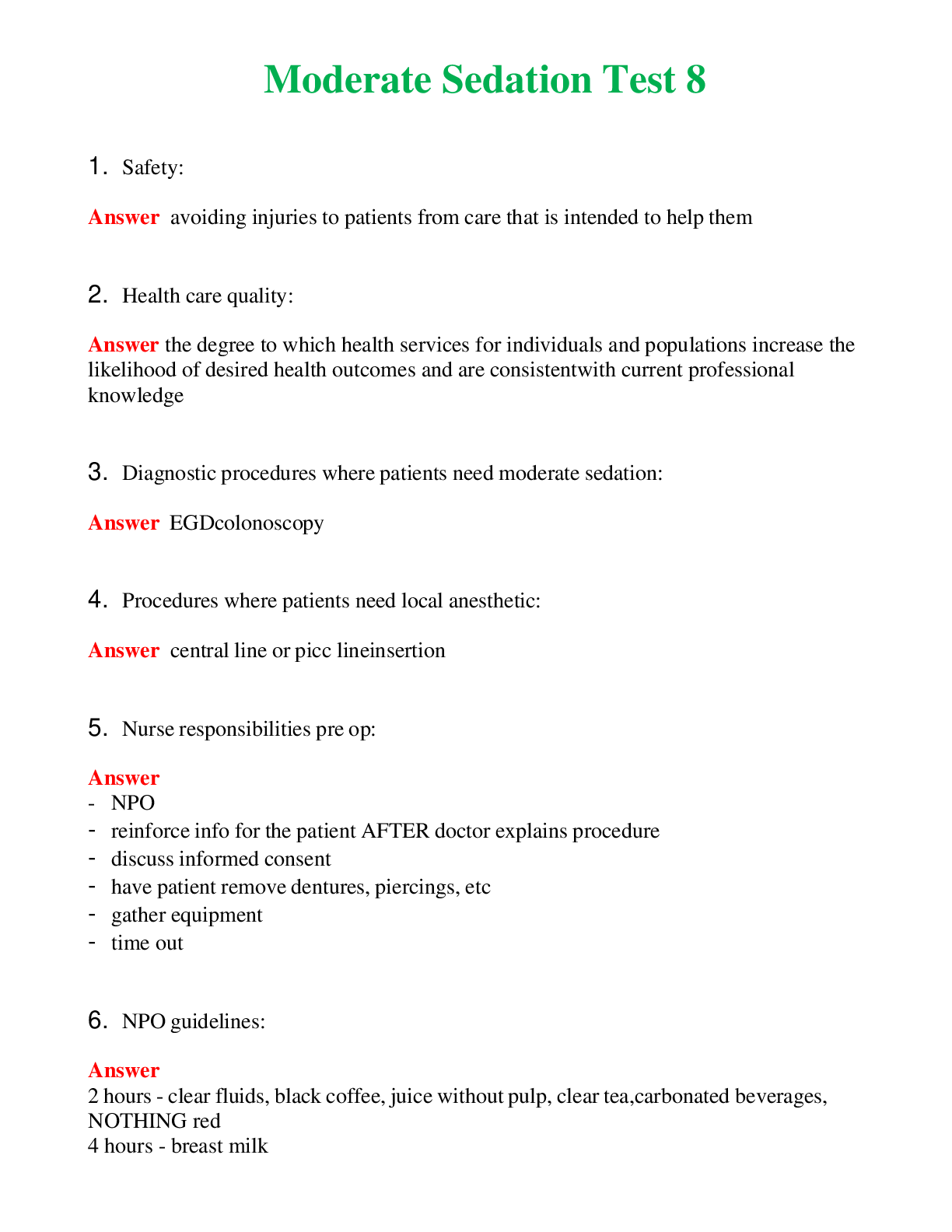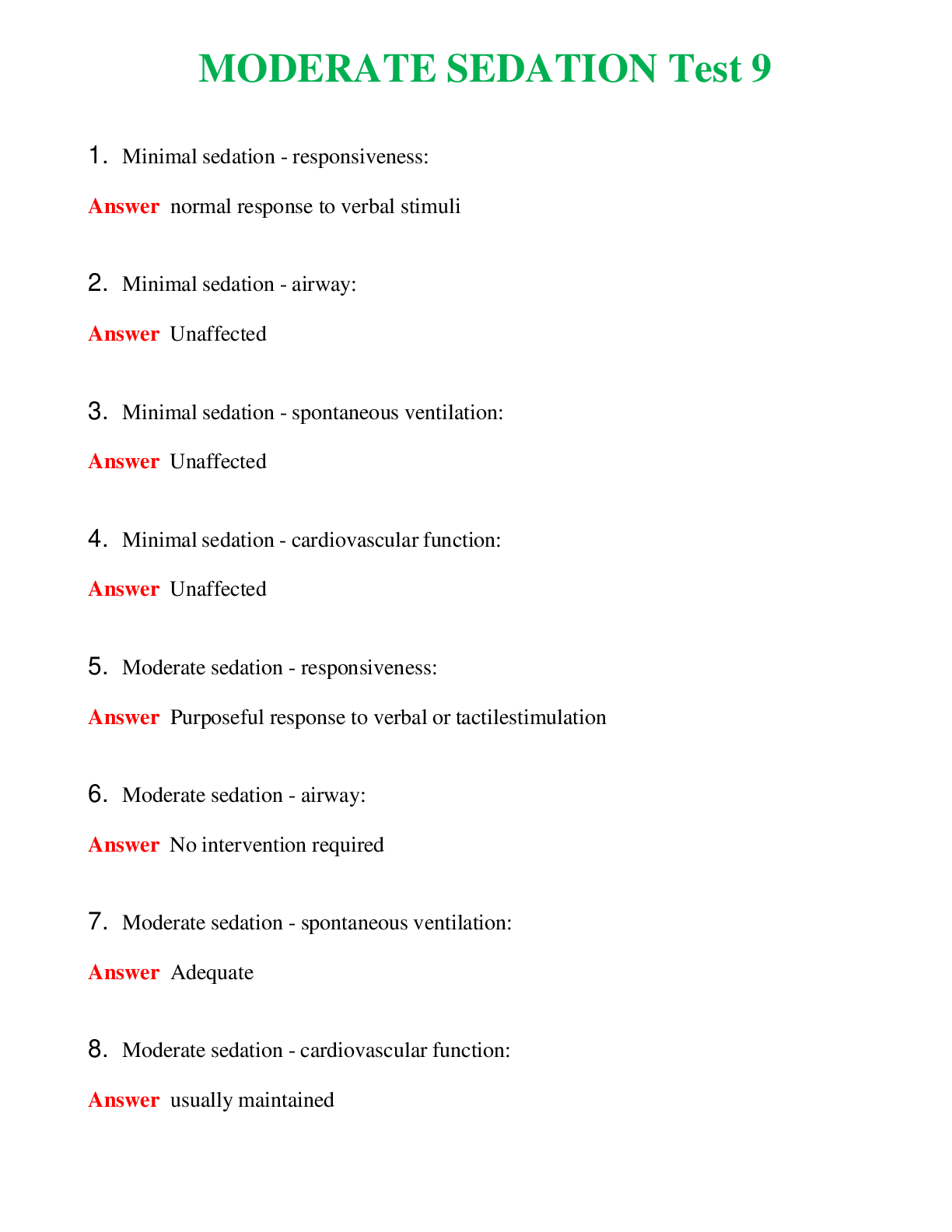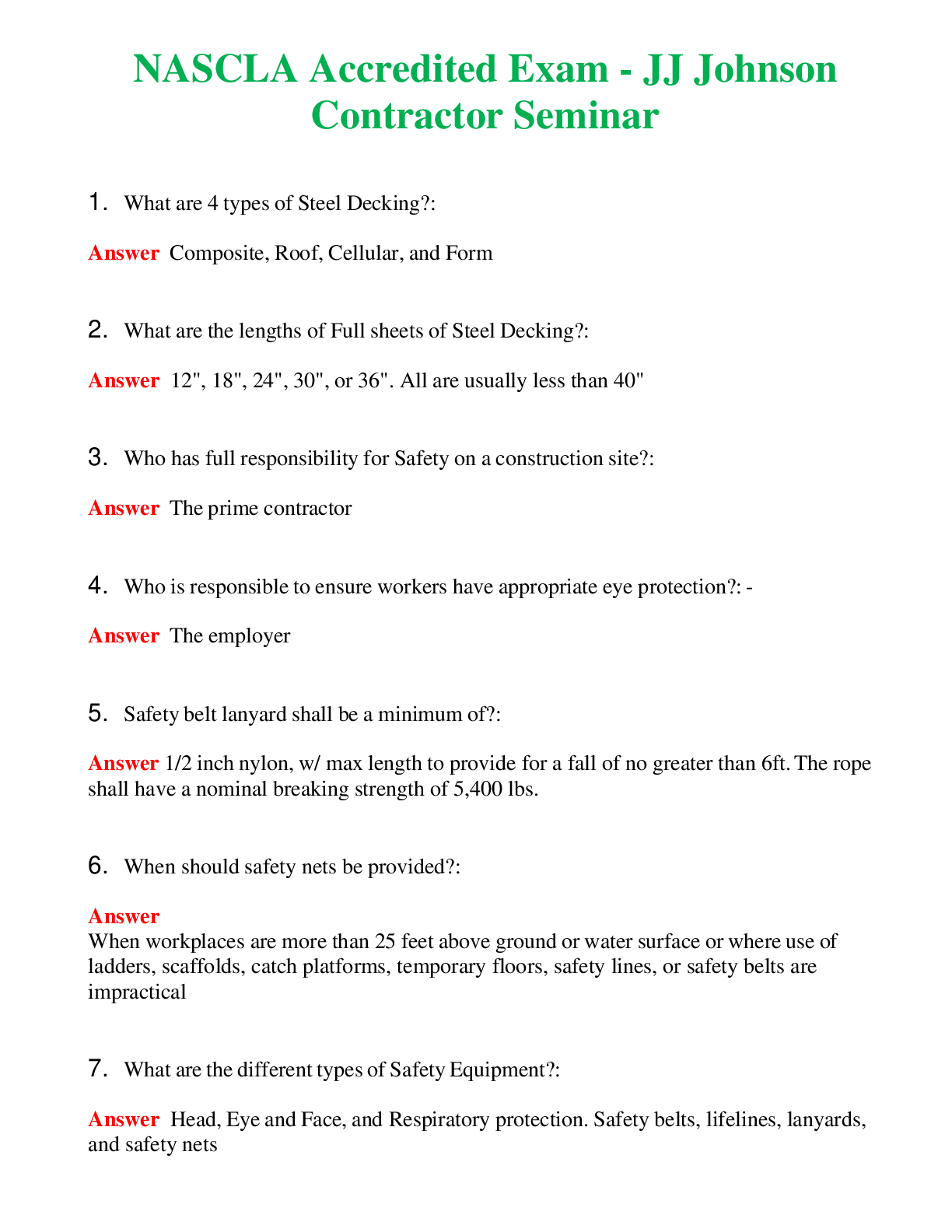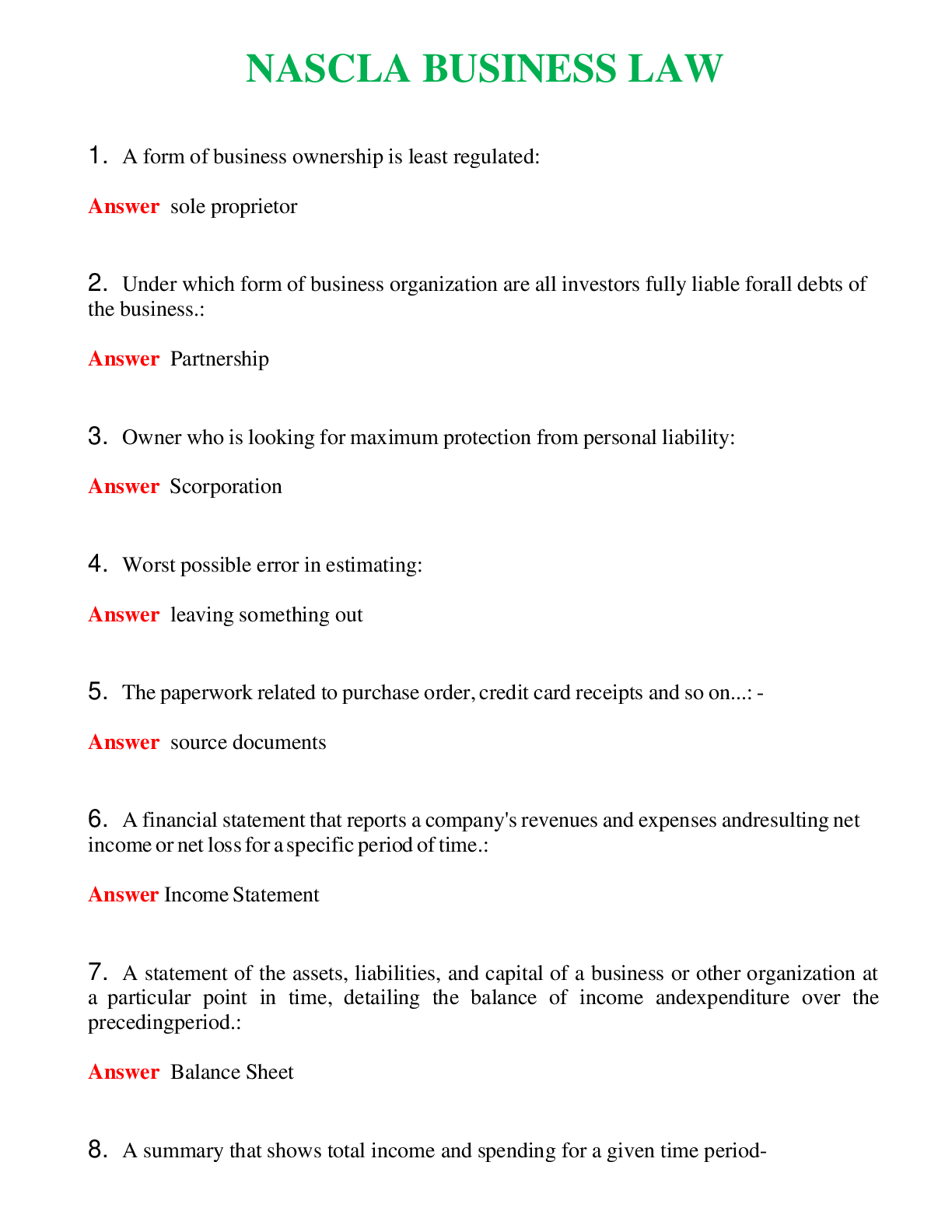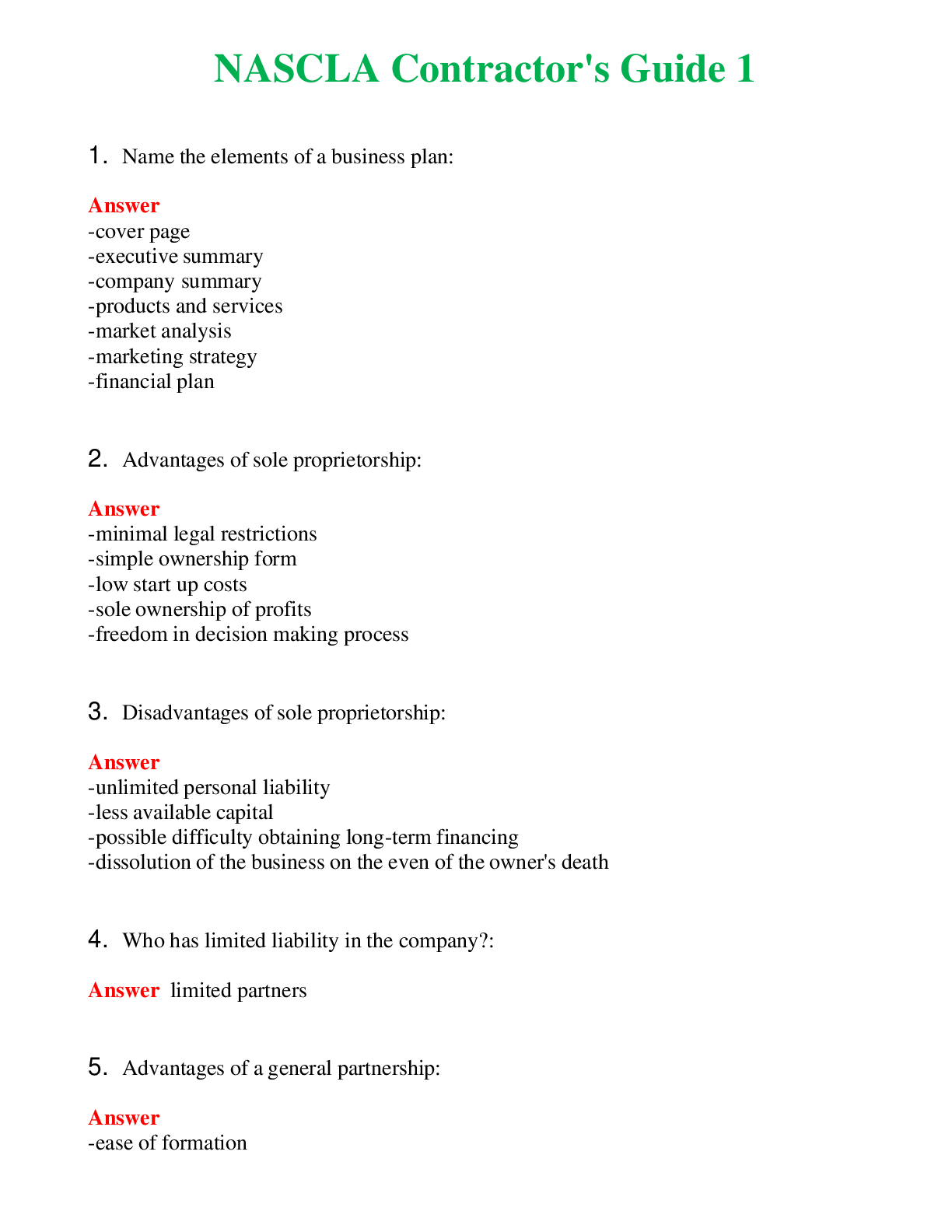Cardiology > EXAM > SOLVED- ELABORATED-American Heart Association-Advanced Cardiovascular Life Support (ACLS)- Final Exa (All)
SOLVED- ELABORATED-American Heart Association-Advanced Cardiovascular Life Support (ACLS)- Final Exam Questions for 2023 ACLS
Document Content and Description Below
SOLVED- ELABORATED-American Heart Association-Advanced Cardiovascular Life Support (ACLS)- Final Exam Questions for 2023 ACLSAmerican Heart Association-Advanced Cardiovascular Life Support (ACLS)- Fin ... al Exam Questions for 2023 ACLS A patient experiences cardiac arrest, and the resuscitation team initiates ventilations using a bag-valve-mask (BVM) resuscitator. The development of which condition during the provision of care would lead the team to suspect that improper BVM technique is being used? Select the correct answer to this question. a) Rib fracture b) Esophageal injury c) Pneumothorax d) Hypertension - Ans| >> Pneumothorax 1 A member of the resuscitation team is preparing to administer medications intravenously to a patient in cardiac arrest. The team member follows each medication administration with a bolus of fluid. How much would the team member give? Select the correct answer to this question. a) 5 to 10 mL b) 10 to 20 mL c) 20 to 30 mL d) 30 to 40 mL - Ans| >> When administering medications during a cardiac arrest, all medications administrated through the IV or intraosseous infusion route should be followed by a 10- to 20-mL fluid bolus. The resuscitation team suspects that hyperkalemia is the cause of cardiac arrest in a patient brought to the emergency department. Which finding on a 12-lead ECG would confirm this suspicion? a) Wide-complex ventricular rhythm and tall, peaked T waves b) ST-segment changes, T-wave inversion c) Flat T waves, prominent U waves and possibly prolonged QT intervals d) Narrow-complex ventricular tachycardia - Ans| >> Wide-complex ventricular rhythm and tall, peaked T waves In hyperkalemia the patient's 12-lead ECG rhythm strip will show wide-complex ventricular rhythm and tall, peaked T waves. A patient with an ischemic stroke arrives at the emergency department at 2 a.m. The patient's symptoms started about 12:30 a.m. After completing the necessary assessments, the healthcare team diagnoses an ischemic stroke, and the patient is determined to be a candidate for fibrinolytic therapy. To achieve the best outcomes, the team should initiate therapy for this patient no later than by which time? Select the correct answer to this question. a) 3:00 a.m. b) 5:30 a.m. c) 6:00 a.m. d) 8:30 a.m. - Ans| >> 1 3:00 a.m. A resuscitation team is debriefing following a recent event. A patient experienced cardiac arrest, and advanced cardiac life support was initiated. The patient required the placement of an advanced airway to maintain airway patency. Which statement indicates that the team performed high-quality CPR? Select the correct answer to this question. 1. "We kept the rate of chest compressions to around 100 per minute but adjusted their depth to 1.5 inches while giving 1 ventilation every 3 seconds." 2. "We delivered chest compressions at a rate of 80 to 100 per minute to a depth of at least 2 inches and gave 1 ventilation every 6 seconds." 3. "We initiated chest compressions at a rate of 100 to 110 per minute to a depth of 2.4 inches and then gave 1 ventilation every 10 seconds." 4. "We delivered 1 ventilation every 6 seconds and chest compressions at a rate of 100 to 120 compressions per minute." - Ans| >> 4 "We delivered 1 ventilation every 6 seconds and chest compressions at a rate of 100 to 120 compressions per minute." A patient with a suspected stroke arrives at the emergency department at 7:10 p.m. The stroke team ensures that a comprehensive neurologic assessment using the National Institutes of Health Stroke Scale (NIHSS) is completed and that brain imaging is performed by which time? 1. 7:20 p.m. 2. 7:30 p.m. 3. 7:40 p.m. 4. 7:50 p.m. - Ans| >> 2 Within 20 minutes of the patient's arrival, a comprehensive neurologic assessment should be completed and brain imaging should be performed. That would be 7:30 p.m. for this patient. [Show More]
Last updated: 2 years ago
Preview 1 out of 13 pages

Buy this document to get the full access instantly
Instant Download Access after purchase
Buy NowInstant download
We Accept:

Reviews( 0 )
$14.50
Can't find what you want? Try our AI powered Search
Document information
Connected school, study & course
About the document
Uploaded On
May 11, 2023
Number of pages
13
Written in
All
Additional information
This document has been written for:
Uploaded
May 11, 2023
Downloads
0
Views
123

